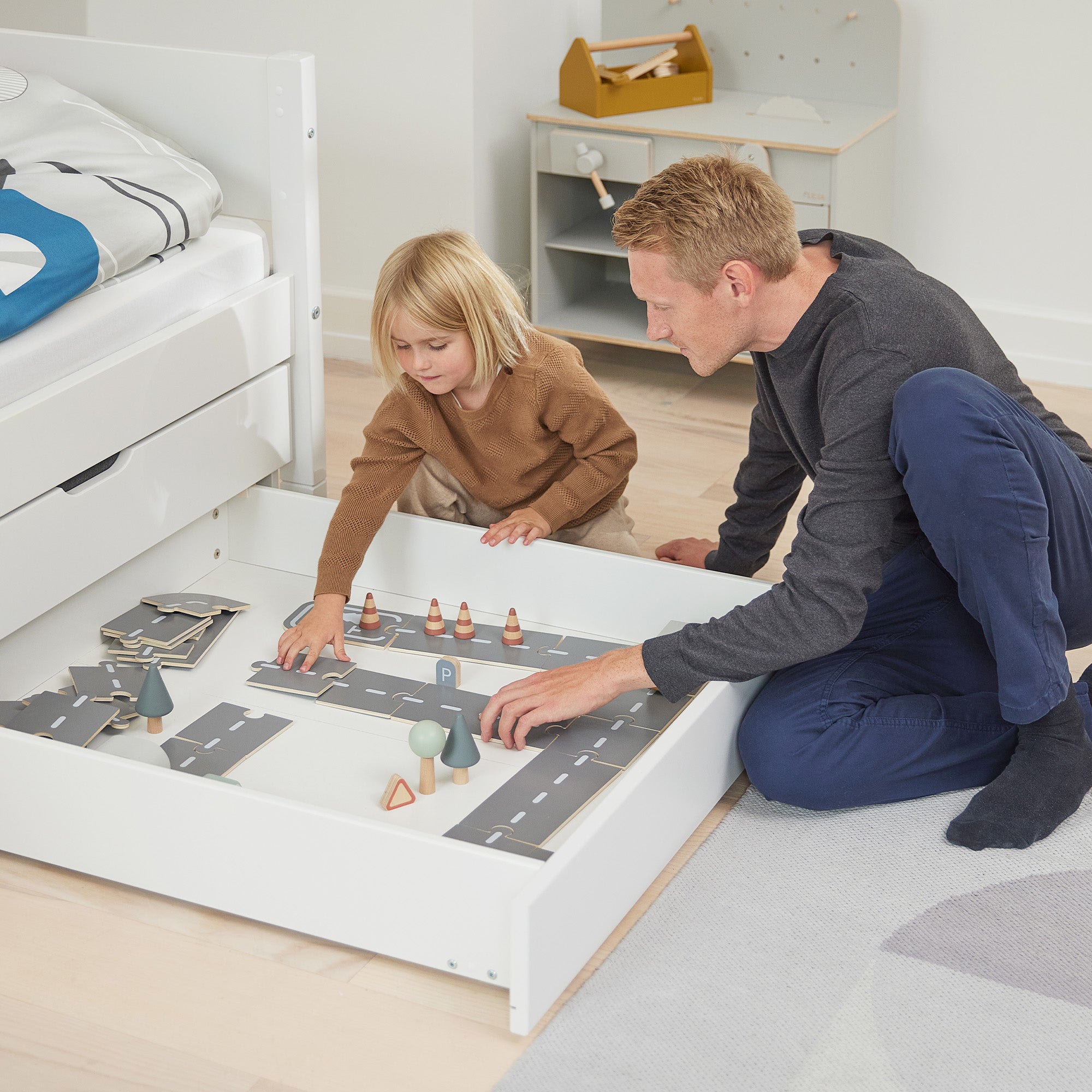Les familles modernes sont très occupées. Beaucoup trop occupées de l’avis de la conseillère familiale Lola Jensen. Au cours de ses 37 ans d’expérience en tant que conseillère familiale, elle a observé les conséquences d’un planning trop chargé et d’un temps devant l’écran trop important sur les petits enfants, et en particulier sur leur cerveau. Dans cet article, nous vous montrons la triste réalité, mais vous recevez également les conseils inspirants de Lola Jensen sur la façon de ralentir le rythme à la maison.
Points forts:
- Nous vivons dans l’agitation du vingt et unième siècle et seuls quelques enfants parviennent à suivre le rythme.
- Les autres commencent à se replier sur eux-mêmes, certains sont même déprimés ou considérés comme étant très sensibles.
- Pour leur bien-être et leur santé, les enfants ont besoin de temps pour être simplement des enfants.
- Voici les conseils de la conseillère familiale pour créer une atmosphère calme et paisible chez vous:
- Limitez les activités inutiles, comme les activités extrascolaires et les loisirs.
- Éteignez les écrans et profitez plutôt d’une certaine tranquillité d’esprit.
- Faites de la place pour jouer – c’est l’espace de liberté de votre enfant.
Du Temps pour être Simplement des Enfants
Nous avons l’habitude d’entendre ces mots de la part des adultes : « Les enfants, pouvez-vous faire moins de bruit. » Mais au nom des enfants, Lola Jensen, conseillère familiale, déclare plutôt : « Les parents, pouvez-vous bien faire moins de bruit. »
« Nous vivons dans l’agitation du XXIe siècle avec des attentes élevées pour nous-mêmes et pour les personnes qui nous entourent. Mais les petits enfants ne sont pas faits pour ce genre de course. Certains parviennent à suivre le rythme, mais d’autres commencent à se replier sur eux-mêmes, certains sont même déprimés ou considérés comme étant très sensibles. Ce dont les enfants ont vraiment besoin, c’est d’un peu de tranquillité et de calme, et de temps pour être simplement des enfants », déclare Lola Jensen.
3 Manières de « Mettre sur Pause »
La conseillère familiale expérimentée vous donne ses trois conseils pour ralentir la vie de famille moderne:
1. Limiter les Activités Inutiles
« Au cours d’une seule journée, le cerveau de votre enfant est exposé à un million de nouvelles impressions. Toutes ces impressions doivent être classées dans le cerveau de votre enfant et traitées avant le coucher, sinon elles s’accumuleront et entraîneront un sommeil instable. Vous pouvez ralentir les choses en limitant les programmes inutiles : activités extrascolaires, cours de gymnastique hebdomadaire pour bébé ou vos propres activités de loisirs. Profitez du temps libre supplémentaire pour être vraiment présent avec vos enfants et votre conjoint. »
2. Éteindre les Ecrans
« Des recherches ont montré que les lumières bleues des smartphones, tablettes, consoles de jeu et téléviseurs trompent le cerveau en lui faisant croire que c’est la journée, ce qui complique le sommeil des adultes et des enfants. De plus, lorsque nous intégrons les écrans dans les petites pauses de la journée, nous supprimons les périodes calmes dont notre cerveau a besoin pour stocker des informations, se souvenir et se développer. Éteignez donc les écrans et remarquez plutôt ce qui se passe lorsque vous passez un peu de temps dans le calme ensemble. Vous ouvrez la voie à des conversations spontanées et à de nouvelles idées de jeux fantastiques. »
3. Faire de la Place au Jeu
« Le temps de jeu est l’espace de liberté d’un enfant. C’est là qu’il est libre de commencer les jeux qu’il veut et d’être simplement un enfant, seul ou en compagnie d’autres personnes. Lorsque les enfants jouent, ils traitent naturellement les événements de la journée. Un conflit avec un camarade plus tôt dans la journée est peut-être réglé dans un jeu de rôle, et toutes les instructions de l’enseignant en maternel sont classées tandis que votre enfant essaie tranquillement de faire un puzzle. Donc, à chaque fois que c’est possible, faites de la place pour les activités de jeu d’imagination des enfants. »

